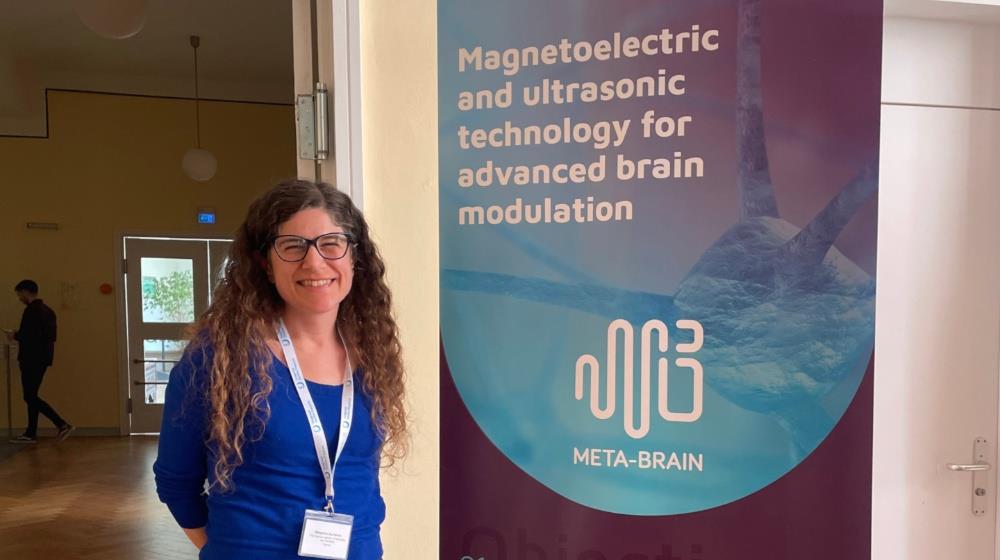The Cyprus Institute of Neurology and Genetics (CING) is the latest addition to a team of seven expert partners specialising in neuroscience, theoretical modelling, nanotechnology, novel materials, and clinical practice, from Spain, Italy, Austria, Switzerland and now Cyprus.
These partners have united under the META-BRAIN project—short for MagnetoElectric and Ultrasonic Technology for Advanced BRAIN Modulation—with the goal of achieving precise control over brain activity patterns through the innovative application of remote magnet and ultrasound technologies.
About the Cyprus Institute of Neurology and Genetics (CING)
Based in Nicosia, the Cyprus Institute of Neurology and Genetics (CING) is a private, non-profit centre. Its mission is to pursue excellence in clinical and laboratory services, research and education for the benefit of patients and society. In particular, CING concentrates on alleviating the suffering of patients and their families while preventing diseases through patient care, research, and educational programmes. CING focuses on these three pillars on neurological, neuromuscular and genetic conditions, including muscular dystrophy, multiple sclerosis, epilepsy, dementia, metabolic diseases, rare haematological diseases, infectious diseases, chromosomal abnormalities, cardiovascular diseases and various types of cancer. CING also plays a crucial role in forensics, supporting law enforcement by providing specialised DNA services and expert court testimony.
CING is a leader in medical and biomedical translation, integrating education, service, and research to deliver significant medical benefits. It was the first in Cyprus to successfully combine postgraduate education, research, and service, setting a high standard in the field. Recognised internationally, CING serves as a centre of excellence, offering high-quality services, conducting innovative research, and providing postgraduate education. An expansion is underway into state-of-the-art premises and new research groups through a loan granted by the European Investment Bank, with government support, to create a translational research and innovation centre.
CING’s contribution to META-BRAIN
CING joins the META-BRAIN project through the Hop-ON facility and will remain involved until the project’s conclusion in December 2026. The integration of CING will strengthen the project’s core objectives and contribute to advancing the state of the art. Specifically, CING will explore how magnetoelectric and ultrasound interventions can control neural activity by developing spatiotemporal computational models that connect mesoscale neuronal dynamics with microscale single-neuron activity. The inclusion of advanced mathematical and computational approaches will not only enhance META-BRAIN’s outcomes but also elevate CING’s research capacity as a widening partner.
CING’s role in the project will focus on developing, validating, and simulating realistic mathematical models of cerebral activity across various scales. This will allow for the investigation of how magnetoelectric nanoarchitectures and ultrasound stimulation, both separately and in combination, influence single-neuron and network dynamics. Additionally, CING will work on predicting the cellular and network mechanisms underlying the effects of these interventions on neuronal activity.
Research leadership and scientific focus
The META-BRAIN team at CING will be led by Dr Margarita Zachariou, Associate Scientist in the Bioinformatics Department (pictured above). Dr Zachariou holds a PhD. in Mathematics and works on mathematical models for neurodegenerative diseases and the integration of multi-modal data through network analysis. The Bioinformatics Department at CING is dedicated to being a hub of excellence in systems bioinformatics, focusing on early diagnosis, effective prognosis, and drug discovery. The department’s work contributes to the advancement of Preventive, Personalised, and Precision Medicine.
“Our contribution to META-BRAIN will help us better understand how different parts of the brain—right down to individual neurons—respond to new, non-invasive technologies like magnetoelectric and ultrasound stimulation,” stated Zachariou. “By building detailed mathematical models that connect the smallest building blocks of the brain to the bigger picture, we aim to uncover new insights that bring us closer to more personalised and effective ways to treat brain disorders.”
Broadening participation through the Hop-On Facility
The Hop-On Facility, through which CING joined the META-BRAIN project, allows legal entities from countries with low research and innovation (R&I) performance to join already-selected collaborative R&I actions within Horizon Europe, subject to the consortium’s approval. Its goal is to enhance inclusivity by involving more research institutions from countries with lower R&I performance compared to other EU member states. To be selected, new partners must demonstrate excellence and added value, ensuring relevance and complementarity with the existing project.
About the META-BRAIN Project
Supported by the European Union under the Horizon Europe programme, with funding close to €3.5 million, META-BRAIN is coordinated by IDIBAPS and composed by Hospital Clínic de Barcelona, CIBER – Centro de Investigación Biomédica en Red, Zabala Innovation), Consiglio Nazionale delle Ricerche – CNR and its research institutes Istituto di Elettronica e di Ingegneria dell’Informazione e delle Telecomunicazioni and Istituto per la Microelettronica e Microsistemi, GTEC Medical Engineering), ETH Zurich and now the Cyprus Institute of Neurology and Genetics.









